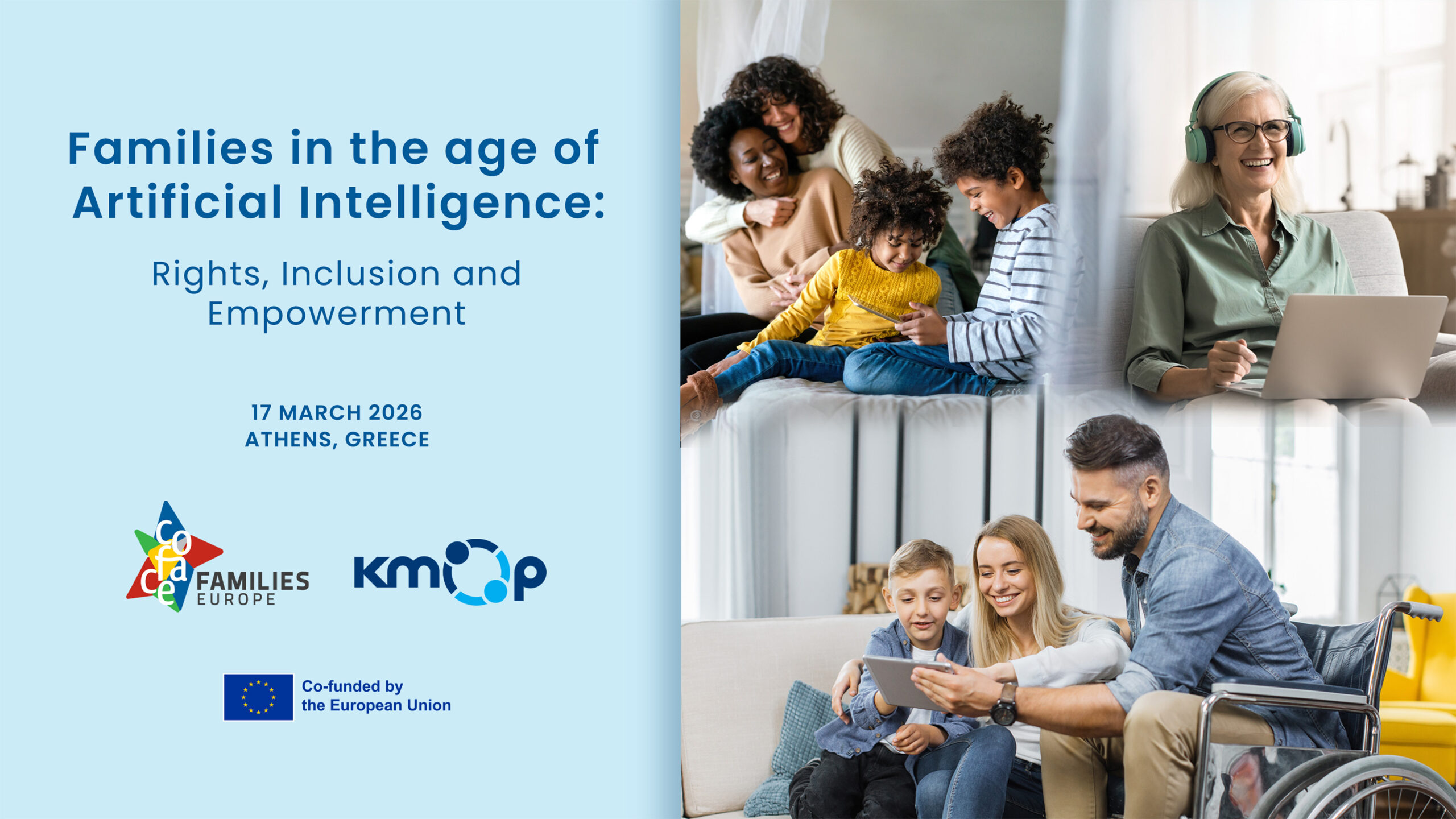The COVID-19 pandemic has damaged our societies and economies, and the war in Ukraine is adding further pressure (expanding the number of single parent families in Europe). The situation has also put centre stage the role of families as safety nets while magnifying the shortcomings of our systems which have been ignored for too long. This situation is unacceptable and now is the time to build back better using national and EU policy and legislative tools to achieve greater wellbeing of children and their families, access to high quality, inclusive and community-based services. Co-hosted by COFACE and Women 4 Women Czech Republic, this European expert meeting explored the effectiveness of family policies to address the realities of single parent families.
Single parenthood, like any family type, is not a homogenous block and covers different realities: headed by mothers, fathers, and even by a grandparent raising their grandchildren, having one child or being a large family, being from a migrant background, having a child or parent with disabilities. According to a recently commissioned European Parliament study, single parenthood is becoming more common in the EU, and the majority of single parent households are headed by women. For some people, single parenthood is a choice. But for many it is not, and linked to a series of life events they have not chosen. Children in single parent families do not necessarily have any more needs than children in other types of families, but their vulnerabilities will increase due to heightened risk of poverty and exclusion of their parent. Compared to couples with children, single parents do have higher rates of living in a household with low work intensity, at-risk-of-poverty (AROP), or material deprivation. More here. The share of single parents among all households with children varies considerably from one country to another in the European Union, from more than 20% in Sweden, Denmark, Estonia, Latvia, Lithuania and France to less than 9% in countries like Croatia, Romania, Finland, Greece, Slovakia, Malta, Poland, Spain, Slovenia. More here.
Each policy should aim for universal results by triggering a two-track way of thinking from the beginning (i.e. mixing universal measures for all families and targeted measures for families in vulnerable situations). This cannot be treated in parallel or one after the other, this universal particularism needs to be integrated in the thinking from the outset. This will allow for policies that aim to prevent and redress the situation, mobilising all levels of governance in an integrated way. In order to do that, the policy-making should be more inclusive and allow concerned families and their representative organizations to participate to their shaping, monitoring and evaluation.
The European expert meeting objectives were the following:
- Explore the reality of single parents across different EU countries, using a multi-generation lens;
- Discuss existing challenges and solutions in policy and practice;
- Review family policies to integrate and respond to diverse needs of families of today, in light of developments under the EU Child Guarantee action plans;
- Boost the implementation of the European Pillar of Social Rights Action Plan, namely principles 2 (gender equality), 3 (equal opportunities), 9 (work-life balance) and access to childcare and support to children (11)
See the programmes in English and Czech.
See full meeting report in English
Presentations
Supporting single parents and their children under the EU Child Guarantee: objectives, plans, partnerships. by Martina Štěpánková Štýbrová – Director of Department of Family Policy and Protection of Children´s Rights, Ministry of Labour and Social Affairs, Czechia.
Beyond family policy: The effectiveness of policies to address the realities of single parents in the European Union by Rense Nieuwenhuis, Associate Professor in Sociology, Swedish Institute for Social Research (SOFI), Stockholm University
Study session 1: Mental health and work-life balance
Study session 2: Policies which reach out to single-parent realities
- Rasa Zemaite, Coordinator, National Assembly of Active Mothers, Lithuania
- Daniel Alvarez, Project Manager, Isadora Duncan Single-Parent Foundation, Spain
Study session 3: Separation, mediation, and blended families
Study session 4: Housing solutions for social and economic integration




